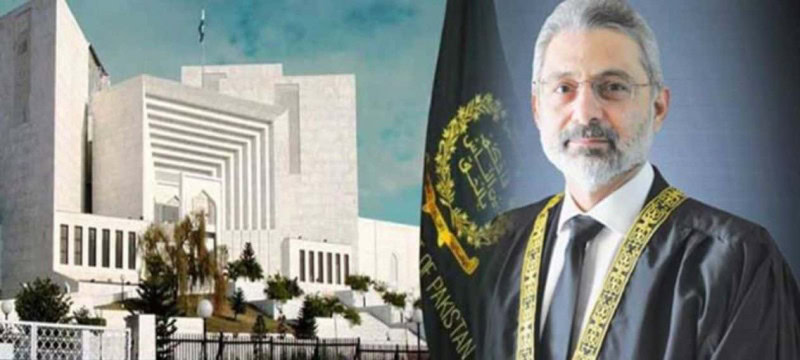In a recent video on YouTube, Hamid Mir shed light on the discussions surrounding the role of secret agencies in politics, there’s a growing call for their eradication from the political landscape. Chief Justice Qazi Faiz Isa’s potential to put an end to this interference has stirred debates across Pakistan. The story unfolds through two critical Supreme Court decisions, as shared by seasoned journalist Hamid Mir.
سیاست میں خفیہ اداروں کا کردار ختم کرنا کیوں ضروری ہے؟ کیا چیف جسٹس قاضی فائز عیسیٰ خفیہ اداروں کا سیاسی کردار ختم کر پائیں گے؟ سپریم کورٹ کے دو فیصلوں کی کہانی حامد میر کی زبانی
مکمل وی لاگ دیکھیں: https://t.co/kbUIZC0eYa pic.twitter.com/dApWJbq77T
— Hamid Mir حامد میر (@HamidMirPAK) November 22, 2023
The Faizabad Dharna case and the Asghar Khan case represent pivotal judgments by the Supreme Court. Their full implementation holds the promise of significantly reducing intelligence agency interventions in politics, fostering a more level playing field for political parties.
At the core of this debate lies the issue of a fair playing ground for political entities in Pakistan. The role of the Election Commission and the Supreme Court in shaping the electoral process is pivotal, ensuring a transparent and just democratic system.
The Faizabad Dharna Case and the Asghar Khan Case stand as beacons of hope for curtailing the influence of intelligence agencies in political affairs. If fully executed, these judgments could mark a turning point in diminishing undue interference.
The reference against Justice Qazi Faiz Essa and the ensuing division within the Supreme Court added complexity to this narrative. It raised questions about the judiciary’s ability to address issues related to secret agencies and their involvement in politics.
Delving into the Asghar Khan Case revealed shocking details, shedding light on the profound role of intelligence agencies, particularly the ISI, in political matters. The judgment’s revelations were startling, underscoring the extent of interference in the country’s political landscape.
The Supreme Court’s remarks about intelligence agencies like the ISI and MI further emphasized the need for a comprehensive implementation of these critical judgments to restore the integrity of the political sphere.
As the discourse continues, the implementation of the Faizabad Dharna Case judgment remains a focal point. Its execution could serve as a litmus test for the commitment of authorities in curbing secret agency involvement in political affairs.
The road ahead poses challenges, with a divided opinion within the Supreme Court, referencing against a sitting judge, and the intricate details emerging from the Asghar Khan Case. However, the push for the complete implementation of these landmark judgments remains a crucial step toward a more transparent and fair political landscape in Pakistan.









